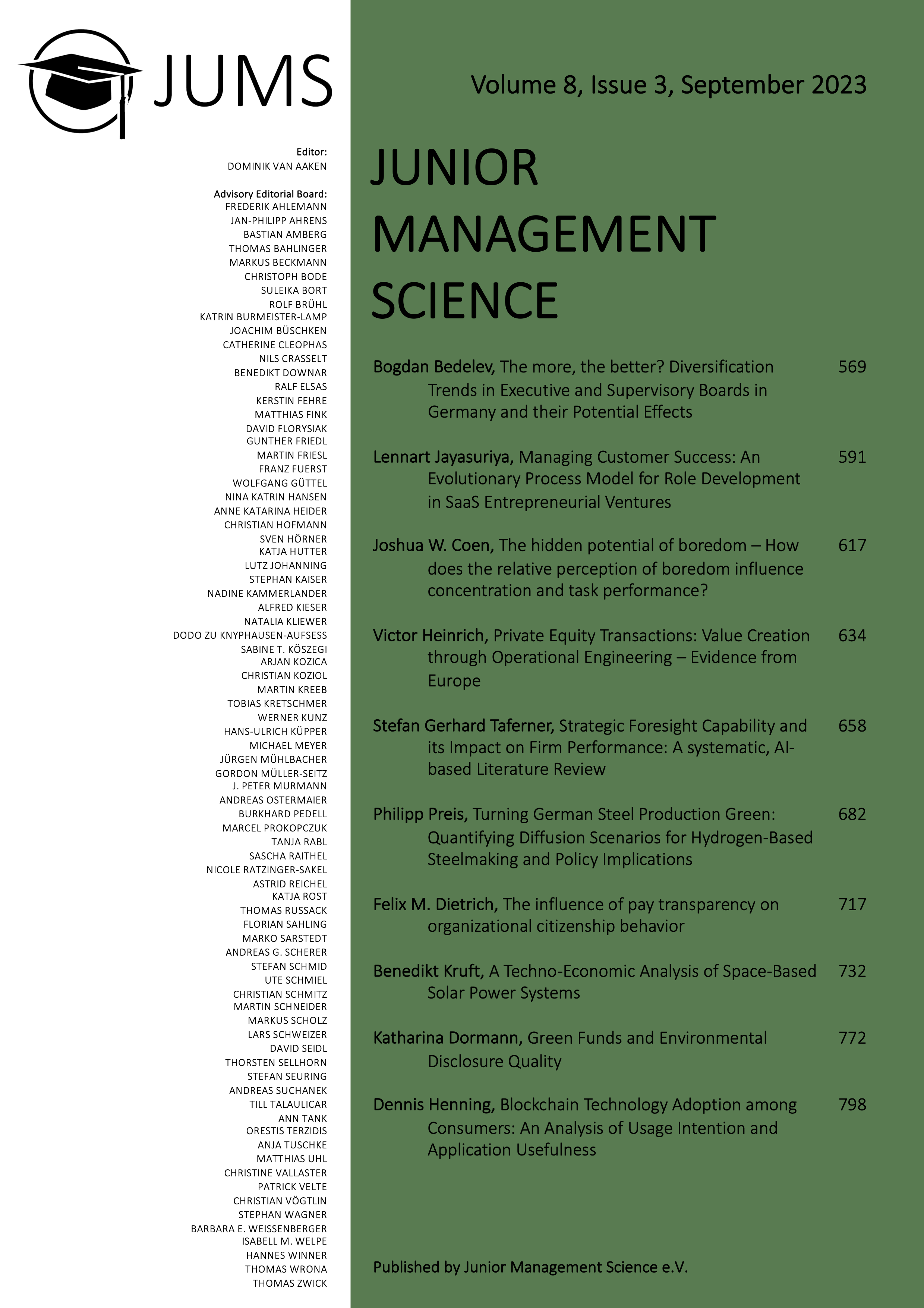Abstract
Strategic foresight is a growing field that attracts scholars aiming to reduce the uncertainty of volatile business environments. However, the field must address crucial challenges to advance theory and practice. To achieve this, the thesis presents a systematic, AI-based literature review that structures the foresight field, displays the status quo, and offers research trajectories. A sample of 243 journal-published articles is analyzed to create an organizing framework as well as provide narrative syntheses on foresight capability and its impact on firm performance. This analysis points out that foresight research often lacks theoretical foundations, mixes epistemological dimensions, and does not work toward a shared objective. Still, six research themes and their connections were identified for an organizing framework. Further, the review points out capabilities for successful foresight: Distinct processual and contextual capabilities developed in accordance with a firm’s environment can ensure success. Lastly, the paper emphasizes that “successful foresight” manifests in practice through a positive impact on strategic, organizational, and performance outcomes. Those findings support the efforts of establishing foresight in management studies and improving academic progress.
Keywords: Strategic foresight; Firm performance; Foresight capabilities; Literature review; Organizing framework.

This work is licensed under a Creative Commons Attribution 4.0 International License.
Copyright (c) 2023 Stefan Gerhard Taferner

